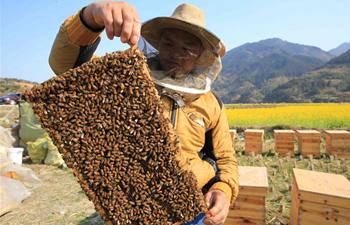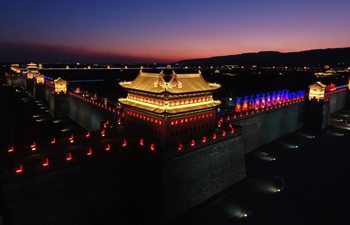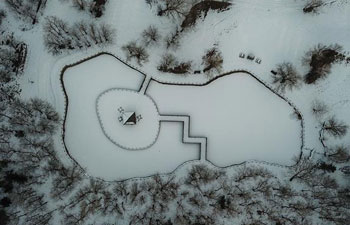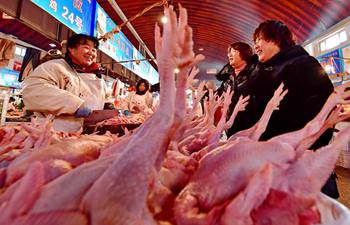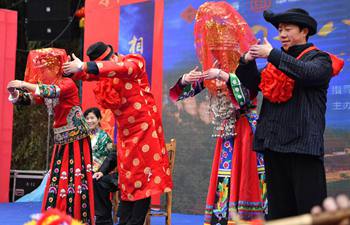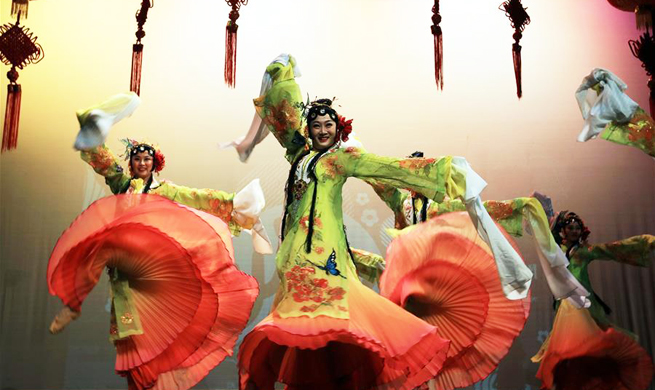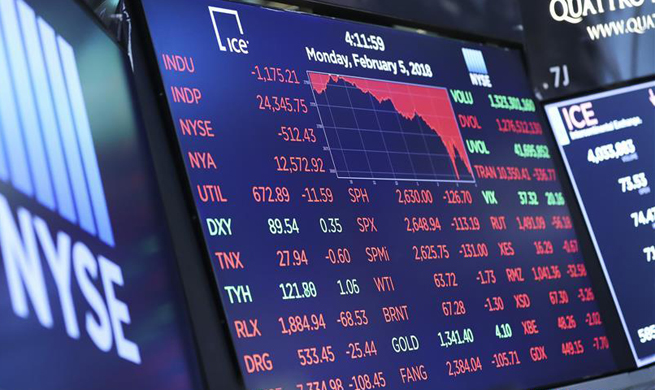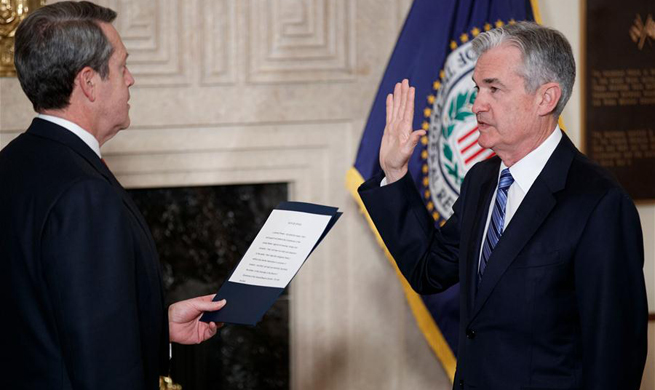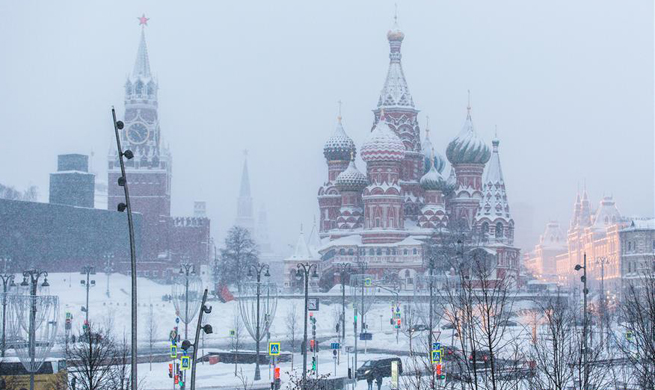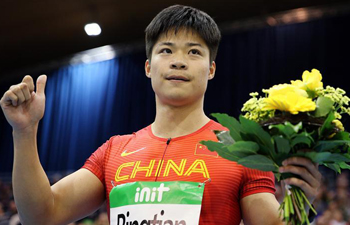HANGZHOU, Feb. 5 (Xinhua) -- A child wearing a traditional shepherd's outfit whipped a buffalo nine times, marking the beginning of spring in Miaoyuan Village, east China's Zhejiang Province.
Buffalo whipping and ploughing is part of an ancient ritual at the village during Lichun, a solar term to mark the formal start of spring, which fell on Sunday this year.
Lichun is not just a division of the solar year in the traditional Chinese calendar but also a time for festivities. Villagers lit firecrackers and placed three incense sticks at a temple early Sunday morning, praying for a good harvest.
"It is the worship of Goumang, or the God of Spring in ancient China," said Gong, 55, host of the ritual, adding that Wutongzu Temple was the only place in China where worship of Goumang still existed.
Gong is the third-generation in his family to perform the ritual, at Miaoyuan Village in Quzhou City.
The ritual also includes sacrificial offerings and the reciting of poetry, which impressed Muaadh Abdulghani Ali, 21, from Yiwu Industrial and Commercial College. The Yemeni was excited to see a sculpture of Goumang, with a man's face and a bird's body, holding a compass and seeds and stamping on two dragons.
"My teacher told me that most aboriginal folklore had been kept well here," said Ali, who found out about the event online.
The 24 solar terms, including Lichun, were added to the UNESCO list of Intangible Cultural Heritage of Humanity in 2016.
"Ancient Chinese farmers used astronomical signs, changes in temperature and precipitation as the basis to create the calendar, which divides the year into 24 segments to guide farming over the four seasons," said Liu Kuili, head of the China Folklore Society.
The ritual dates hundreds of years in Miaoyuan Village but was interrupted during the Cultural Revolution (1966-1976). It resumed in 2005.
"I want to be the inheritor of the ritual and pass on the traditional culture to the next generation," said Huang Hao, an 11-year-old boy attending the ritual.




